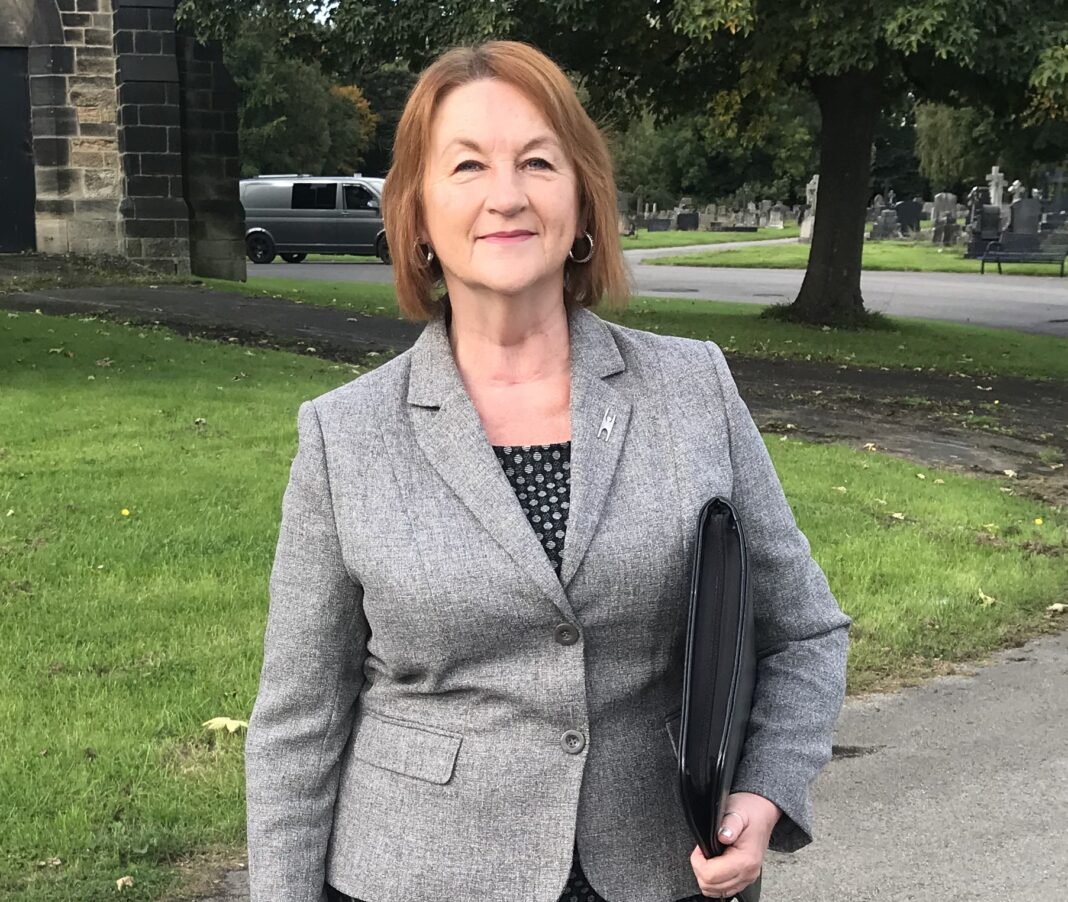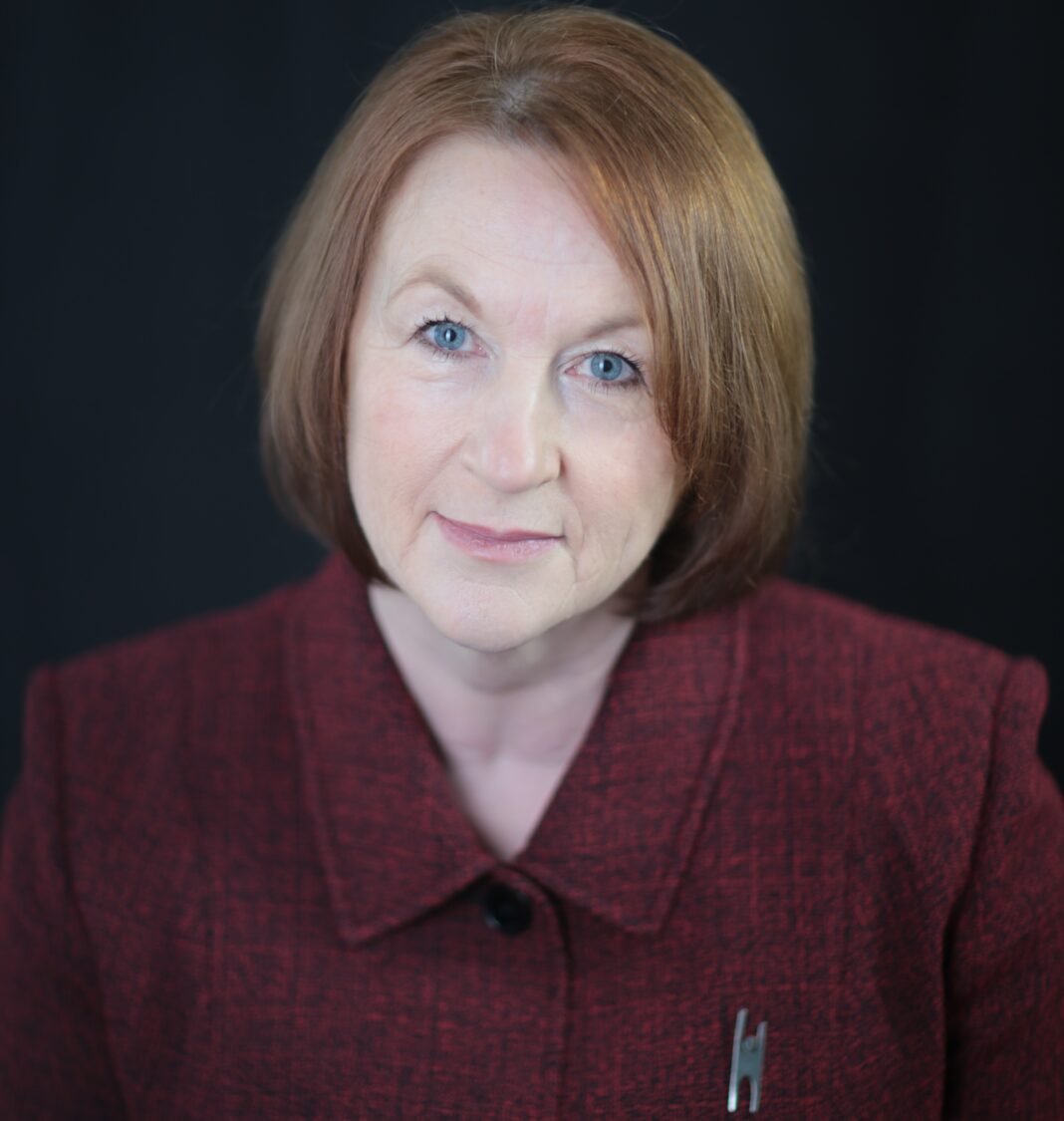Humanist funeral celebrants provide an alternative to religious ceremonies for people wishing to say goodbye to a loved one in a non-religious way. Dawn Thewlis explains how she became a humanist funeral celebrant – and what it means to her.

Like many people, I had humanist values and attitudes long before I had ever heard of the word ‘Humanism’.
Humanists believe in scientific evidence. To me, Humanism means living your best life through common sense, and compassion.
Becoming a member of Humanists UK, was an uplifting and positive experience. I got to know many good-natured , enlightened, intelligent, and fun-loving people.
Why I become a humanist funeral celebrant
After having two humanist funerals for members of my immediate family, I became interested in becoming a humanist celebrant. I planned to train when I was close to retirement. But, after surviving a serious illness, I decided that I didn’t want to wait. I did the training and gained my accreditation in 2008. I’ve never looked back!
Making the decision to train as a celebrant was one of the best things I have ever done for myself.
A rewarding role
I find it rewarding to meet people from all walks of life. I have visited bereaved family members in a variety of settings. I have been to houses, mansions, care homes, bedsits, caravans, and hospitals.
Each person has their own story. It is always a pleasure to learn about the person who died as I talk with family and friends to arrange the funeral.
I enjoy assisting families in creating a loving, dignified, unique funeral. Knowing that I have helped a family during a very difficult time is very rewarding.
An unforgettable ceremony
One memorable ceremony I conducted was for a woman I’d visited at a local hospice during her final days. She had asked me to say a few words on her behalf to her family and friends at the end of the ceremony. They were so surprised and deeply touched. It was very moving and truly unforgettable.
The skills needed to be a funeral celebrant
To be a good funeral celebrant, you need to be a good listener and know the right questions to ask. Being tactful, warm natured, and friendly is also very helpful in this role. A good sense of humour often helps too.
You need to be a ‘people person’, well-organised, easy to talk to, and have a good writing style. Of course, you also need to skills in public speaking.
I’m an easy-going person. I have plenty of life experience, which brings with it empathy and understanding.
I’m naturally a calm person and I have the ability to think on my feet, which is essential at times.
Being a humanist celebrant is never dull. But it does take a certain kind of person to enjoy the work of a celebrant and make it a success.
If you a have an interest in working for yourself, then being a funeral celebrant could be right for you.
Featured celebrant
Dawn Thewlis lives in Haworth. She conducts funeral ceremonies in Leeds, Bradford, Skipton, Keighley, Colne, Nelson, and Burnley.
Dawn’s Testimonials
‘I just wanted to say a huge thank you for today. Everything went so well and I am so grateful for your support. So many people thought that it was a lovely way to say goodbye and were full of praise for your role as celebrant, as am I. Several people said they were now thinking about a humanist ceremony for their own funerals thanks to you.’
‘Thank you for your empathy, compassion and professionalism. It was a lovely service.’
‘From the first moment you entered our home – you showed us such kindness and compassion and your empathy was very comforting to us as a family.’
An introduction to Humanism
This short video by Stephen Fry is a good introduction to Humanism.
How humanist are you?
Take our short quiz to find out if you share humanist values.
Become a humanist celebrant
Find out more about becoming a humanist celebrant, course information, and dates of training programmes on the Humanist Ceremonies website.






